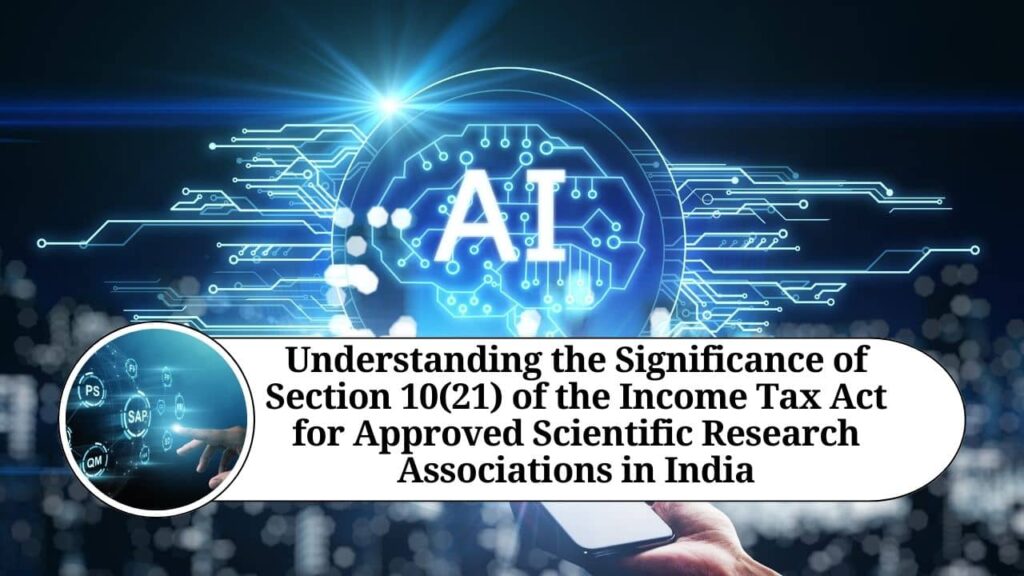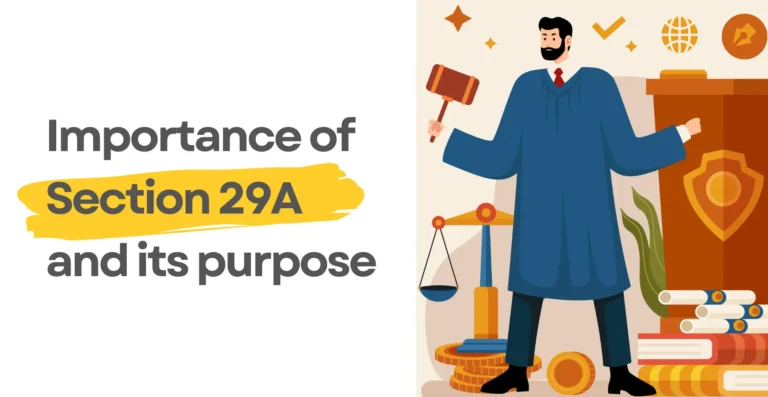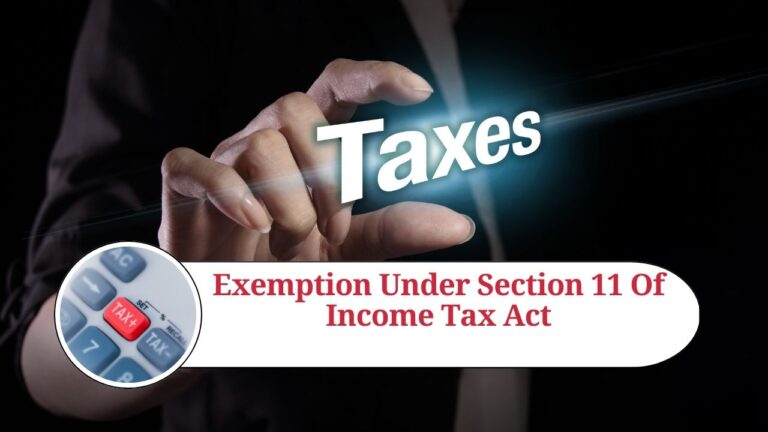Understanding Section 10(21) of the Income Tax Act: Tax Exemption for Research Associations
Introduction
In the ever-evolving landscape of tax regulations, it is crucial for research associations to understand the provisions that govern their tax exemptions. One such important provision is Section 10(21) of the Income Tax Act, which offers specific exemptions to research associations approved under certain clauses of Section 35. This blog aims to elucidate the details of Section 10(21), the conditions for tax exemptions, and the implications for research associations.
What is Section 10(21)?
Section 10(21) of the Income Tax Act provides an exemption for any income of a research association that is approved for the purpose of clause (ii) or clause (iii) of sub-section (1) of Section 35. This means that the income of such approved research associations does not form part of their total income, subject to certain conditions.
Key Conditions for Exemption

Application and Accumulation of Income
For a research association to benefit from this exemption, it must apply its income, or accumulate it for application, wholly and exclusively to the objects for which it is established. The provisions of sub-sections (2) and (3) of Section 11 are applicable to such accumulation, with the following modifications:
Modifications to Sub-section (2) of Section 11:
-
- The words “referred to in clause (a) or clause (b) of sub-section (1) read with the Explanation to that sub-section” are omitted.
-
- The phrase “to charitable or religious purposes” is replaced with “for the purposes of scientific research or research in social science or statistical research”.
-
- References to the “Assessing Officer” are construed as references to the “prescribed authority” referred to in clause (ii) or clause (iii) of sub-section (1) of Section 35.
Modifications to Sub-section (3) of Section 11:
In clause (a), “charitable or religious purposes” is substituted with “the purposes of scientific research, research in social science, or statistical research”.
Investment or Deposit of Funds
The research association must not invest or deposit its funds in any form other than those specified:
Permitted Investments:
-
- Assets forming part of the corpus of the fund as of June 1, 1973.
-
- Debentures issued by or on behalf of any company or corporation acquired before March 1, 1983.
-
- Accretions to shares forming part of the corpus of the fund by way of bonus shares.
-
- Voluntary contributions maintained in the form of jewellery, furniture, or any other article specified by the Board through a notification in the Official Gazette.
Exemption Conditions:
-
- Voluntary contributions other than those in cash must be held in specified forms or modes after one year from acquisition or March 31, 1992, whichever is later.
-
- Income from business activities is exempt only if the business is incidental to the attainment of the association’s objectives and separate books of accounts are maintained.
Approval and Withdrawal by Central Government
The Central Government may withdraw approval if it is satisfied that the research association:
-
- Has not applied its income according to the stipulated provisions.
-
- Has not invested or deposited its funds as required.
-
- Is not conducting genuine activities.
-
- Is not adhering to the conditions of approval.
Before withdrawing approval, the government must give the research association a reasonable opportunity to show cause against the proposed withdrawal. If approval is withdrawn, a copy of the order will be forwarded to the association and the Assessing Officer.
Common Pitfalls and Best Practices
Common Pitfalls
Non-compliance with Investment Regulations:
Research associations often fail to invest their funds in the specified forms, leading to potential loss of exemption.
Improper Application of Income:
Income not applied exclusively to the objectives of the association or used for purposes not aligned with scientific research can result in non-compliance.
Inadequate Documentation and Record-Keeping:
Failure to maintain proper books of accounts, especially for business activities incidental to research objectives, can lead to complications during audits and reviews.
FAQs: Understanding Section 10(21) of the Income Tax Act
1. What is Section 10(21) of the Income Tax Act?
Section 10(21) of the Income Tax Act provides a tax exemption for the income of research associations that are approved for the purposes of clause (ii) or clause (iii) of sub-section (1) of Section 35. This means that the income of such approved research associations does not form part of their total income, provided certain conditions are met.
2. What types of research associations qualify for this exemption?
Research associations that are approved for the purposes of scientific research or research in social science or statistical research under clause (ii) or clause (iii) of sub-section (1) of Section 35 qualify for this exemption.
3. What are the conditions for a research association to avail the tax exemption under Section 10(21)?
To avail the tax exemption under Section 10(21), a research association must:
-
- Apply or accumulate its income exclusively for the objectives for which it is established.
-
- Ensure that the provisions of sub-sections (2) and (3) of Section 11 are applied in relation to such accumulation, with specific modifications.
-
- Not invest or deposit its funds in forms other than those specified in the section.
4. What modifications are made to the provisions of sub-sections (2) and (3) of Section 11?
The modifications include:
-
- Omission of certain words and phrases.
-
- Substitution of “to charitable or religious purposes” with “for the purposes of scientific research or research in social science or statistical research”.
-
- References to the “Assessing Officer” are construed as references to the “prescribed authority” referred to in Section 35.
5. How should the funds of a research association be invested or deposited to comply with Section 10(21)?
The funds must be invested or deposited in specified forms, including:
-
- Assets forming part of the corpus as of June 1, 1973.
-
- Debentures issued before March 1, 1983.
-
- Accretions to shares forming part of the corpus of the fund by way of bonus shares.
-
- Voluntary contributions maintained in specified forms, such as jewellery, furniture, or other articles specified by the Board.
6. Are voluntary contributions included in the exemption?
Yes, voluntary contributions other than those in cash are included in the exemption, provided they are held in specified forms or modes after one year from acquisition or March 31, 1992, whichever is later.
7. Can a research association’s income from business activities be exempt under Section 10(21)?
Yes, income from business activities can be exempt if the business is incidental to the attainment of the association’s objectives and separate books of accounts are maintained for such business.
8. What happens if a research association does not comply with the conditions of Section 10(21)?
If a research association does not comply with the conditions, the Central Government may withdraw its approval. The government must provide a reasonable opportunity for the association to show cause against the proposed withdrawal. If approval is withdrawn, the association and the Assessing Officer will be notified.
9. How does the Central Government withdraw approval for a research association under Section 10(21)?
The Central Government can withdraw approval if it is satisfied that the association:
-
- Has not applied its income as required.
-
- Has not invested or deposited its funds as specified.
-
- Is not conducting genuine activities.
-
- Is not adhering to the conditions of approval.
10. Where can I get more information about Section 10(21) and its implications?
For more detailed insights and updates on tax regulations affecting research associations, visit our blog at SmartTaxSaver. You can also contact us for personalized assistance and guidance on compliance with Section 10(21).
Conclusion
Section 10(21) of the Income Tax Act offers significant tax benefits to approved research associations, provided they meet the specified conditions. Understanding and complying with these provisions is essential for research associations to continue enjoying these exemptions. Staying informed and adhering to the regulations can help research associations focus on their primary objectives without the burden of additional tax liabilities.
For more detailed insights and updates on tax regulations affecting research associations, stay tuned to our blog at SmartTaxSaver. By adhering to the guidelines and ensuring compliance, research associations can make the most of the tax benefits offered under Section 10(21). If you have any questions or need further assistance, feel free to contact us at SmartTaxSaver.3



